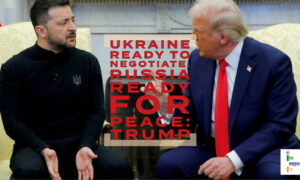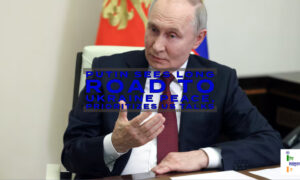
The global economy will grow at 6% in 2021 and at 4.9% in 2022, making the gap between advanced economies and developing economies wide
As per International Monetary Fund’s (IMF’s) latest World Economic Outlook findings, the global economy will grow at 6% in 2021 and at 4.9% in 2022, making the gap between advanced economies and developing economies wide.
The report says that the major reason for this widening of the gap is inequality of Coronavirus (COVID-19) vaccine distribution and a lack of fiscal support for poorer countries. The outlook between advanced and developing economies is splitting along 4 fault lines: COVID-19 vaccines, inflation, risks and policy space.
The finds show that Germany will grow at 3.6%, France at 5.8%, Italy at 4.9%, United Kingdom (U.K.) at 7%, United States (U.S.) at 7%, Japan at 2.8%, Canada at 6.3%, China at 8.1%, India at 9.5%, Russia at 4.4%, Brazil at 5.3%, Mexico at 6.3%, Saudi Arabia at 2.4%, Nigeria at 2.5% and South Africa at 4%.
Releasing the report, IMF tweeted,
JUST RELEASED: #WEO July Update: The economic recovery continues. We forecast global growth of 6% for 2021, unchanged from April. But the composition has changed because of the two-track pandemic which affects emerging and developing countries worse. https://t.co/yxs2PsGbgB pic.twitter.com/i5D3CWHQP9
— IMF (@IMFNews) July 27, 2021
It further tweeted,
The global economy will grow 6% in 2021 – a forecast that masks the divergent recovery between advanced economies with access to vaccines and developing countries with less access. https://t.co/yxs2PsGbgB #WEO pic.twitter.com/ZyvvMAcFOP
— IMF (@IMFNews) July 27, 2021
Taking about uneven growth, IMF tweeted,
— IMF (@IMFNews) July 27, 2021
The IMF projects the global economy to grow at 6% in 2021 and 4.9% in 2022. The recovery remains uneven across regions, depending on access to vaccines. More in the updated World Economic Outlook. https://t.co/yxs2PsXM89 #WEO pic.twitter.com/pwkgQNRBkN
Speaking on the occasion, the Chief Economist at IMF – Gita Gopinath said, “The recovery is not assured until the pandemic is beaten back globally. Concerted, well-directed policy actions at the multilateral and national levels can make the difference in diminishing divergences and strengthening global prospects.”
She further said, “Multilateral action to ensure rapid, worldwide access to vaccines, diagnostics, and therapeutics will help halt divergences and improve prospects for all countries–saving countless lives, prevent new variants, and add trillions to the global economic growth.”
The findings claim that advanced economies are expected to achieve 4.4% growth in 2022, while growth in emerging and developing economies is seen slowing to 5.2% in 2022.
With major economies rolling-back the COVID-19 restrictions, the growth forecasts have jumped as people emerged from lockdowns and unleashed pent-up demand for products and services. That demand surge though is expected to moderate next year. While developed economies had the capability to survive the lockdowns, poorer countries struggled to sustain their economy. Europe is also expected to slow to 4.3% in 2022 from 4.6% in 2021.
The findings state that close to 40% of people in advanced economies have been fully vaccinated as compared to 11% in emerging market economies. The new variants of COVID-19 are another cause of worry which will add to the woes of poorer nations.
Gopinath also said, “The emergence of highly infectious virus variants could derail the recovery and wipe out four and a half trillion dollars cumulatively from global GDP by 2025.”
The poor countries and even emerging markets lack access to the funds that are necessary to jolt economies back to health. Advanced economies, on the other hand, passed U.S. $ 4.6 trillion in fiscal support for 2021 and beyond. In developing economies, most measures expired last year.
The IMF also forecasts inflation to remain high next year. Food prices pressure and currency depreciation will continue to affect the economic progress of the emerging economies.
It suggests that major central banks must clearly communicate their outlook for monetary policy and ensure that inflation fears grapple the economy. It urged that at least 1 billion vaccine doses should be shared by advanced economies to emerging economies in 2021. It also proposed that allocation of U.S. $ 650 billion worth of its reserve currency, known as Special Drawing Rights, should be completed quickly to help countries in need fund their spending needs.







